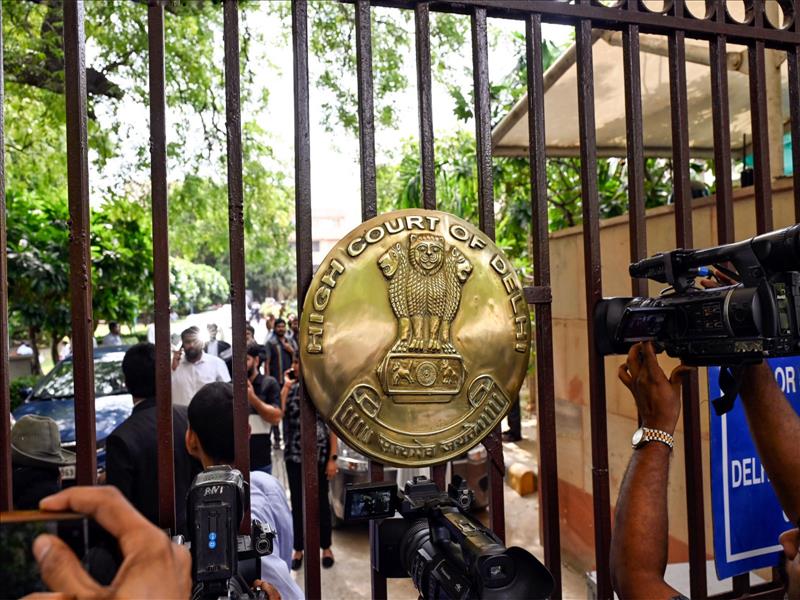Delhi HC Tribunal Upholds Ban On JKIM, AAC Under UAPA
Delhi HC Tribunal Upholds Ban on JKIM, AAC Under UAPA
New Delhi – Two separate Tribunals of the Delhi High Court, headed by Justice Sachin Datta, have upheld the Union Government's decision to ban the Awami Action Committee (AAC), led by Mirwaiz Umar Farooq, and the Jammu and Kashmir Ittihadul Muslimeen (JKIM), headed by Shia cleric Maulana Masroor Abbas Ansari, under the provisions of the Unlawful Activities (Prevention) Act, 1967 (UAPA).
Delivering identical orders, Justice Datta held that there was“ample justification” to declare both organisations as 'unlawful associations' under Section 3(1) of the UAPA. The Tribunal, after independently assessing the material and evidence produced, concluded that the Ministry of Home Affairs (MHA) was justified in issuing its March 11, 2025, notification declaring the associations proscribed for a period of five years.
Findings of the Tribunal
The Tribunal noted that extensive evidence was placed before it, including:
* FIRs registered against members of the organisations,
* testimonies of Jammu and Kashmir officials,
* social media content and interviews of leaders,
* excerpts from the associations' websites, and
* intelligence reports submitted in sealed cover.
Justice Datta observed that the material clearly established the organisations' involvement in separatist activities, their attempts to undermine the sovereignty and integrity of India, and their alleged collaborations with“inimical elements across the border.”
“The Tribunal finds that there is sufficient cause for declaring the organisation as an 'unlawful association' under Section 3(1) of the UAPA. Moreover, given the nature of activities of the association, the Central Government was justified in taking recourse to the proviso to Section 3(3) of the UAPA,” the order stated.
Defence Arguments Rejected
Counsel for JKIM argued that the ban could adversely affect the religious activities of its chairman and members. The Tribunal, however, recorded the assurance of the Additional Solicitor General that personal religious practices, including the conduct of Moharram processions, would not be curtailed under UAPA.
It was also noted that (Masroor) Ansari himself had admitted to leading Moharram processions in July 2025 with requisite government permission, which were attended by lakhs of participants. The Tribunal thus concluded that legitimate religious practices undertaken in personal capacity would remain unaffected by the ban.
The Tribunal further observed that the defence submissions lacked credibility and failed to produce cogent material to counter the Central Government's case.

Legal Disclaimer:
MENAFN provides the
information “as is” without warranty of any kind. We do not accept
any responsibility or liability for the accuracy, content, images,
videos, licenses, completeness, legality, or reliability of the information
contained in this article. If you have any complaints or copyright
issues related to this article, kindly contact the provider above.
Most popular stories
Market Research

- Ozak AI Partners With Pyth Network To Deliver Real-Time Market Data Across 100+ Blockchains
- Blockchainfx Raises $7.24M In Presale As First Multi-Asset Super App Connecting Crypto, Stocks, And Forex Goes Live In Beta
- B2PRIME Secures DFSA Licence To Operate From The DIFC, Setting A New Institutional Benchmark For MENA & Gulf Region
- BTCC Summer Festival 2025 Unites Japan's Web3 Community
- From Zero To Crypto Hero In 25 Minutes: Changelly Introduces A Free Gamified Crash Course
- BILLY 'The Mascot Of BASE' Is Now Trading Live On BASE Chain






















Comments
No comment